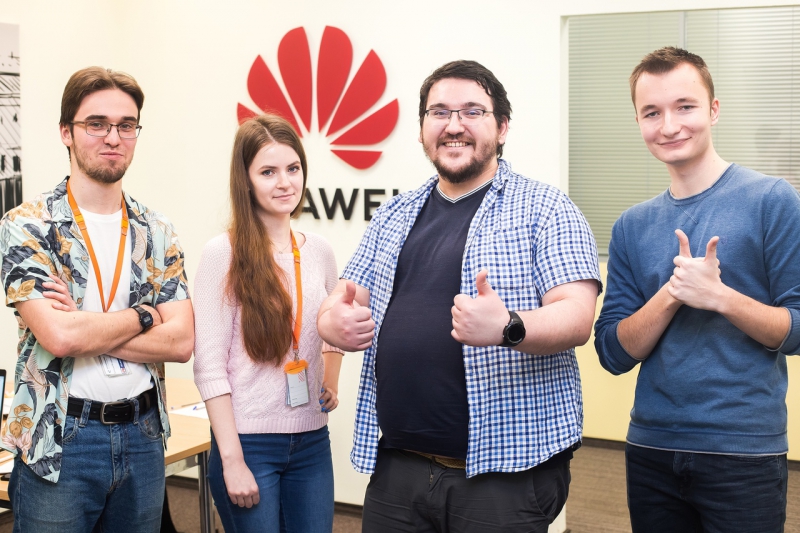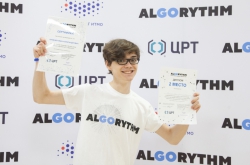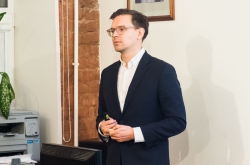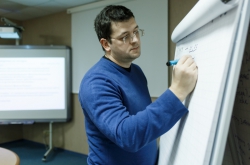Huawei is now among the largest companies working in the field of telecommunications. It was founded back in 1987, and has been operating in Russia for the past 20 years. Apart from its traditional areas of focus, it now places an emphasis on working in the field of AI and machine learning, having presented its AI strategy last year. Among other things, it includes the development of a fundamental service for machine learning in such fields as computer vision, natural language processing, as well as establishing an open ecosystem and training the associated personnel, which implies cooperation with scientists and partners all around the world.
According to Jiancheng Zeng, head of Huawei St. Petersburg Research Centre, the company is now interested in attracting new talented employees like never before.
"Huawei is a major company in the field of information and communication technologies; we hold leadership positions in what has to do with telecommunications, and are among the top-three suppliers of mobile phones. As for our future development, we aim to provide our clients with better products, help unite people and work towards an interconnected intellectual world. Nevertheless, we'll be facing a multitude of technological problems that are yet to be solved. We believe that young talents have many ideas, and they can become experts in the associated fields. For this reason, we are interested in training young specialists and offering them a platform for improving their skills," comments the company's representative.
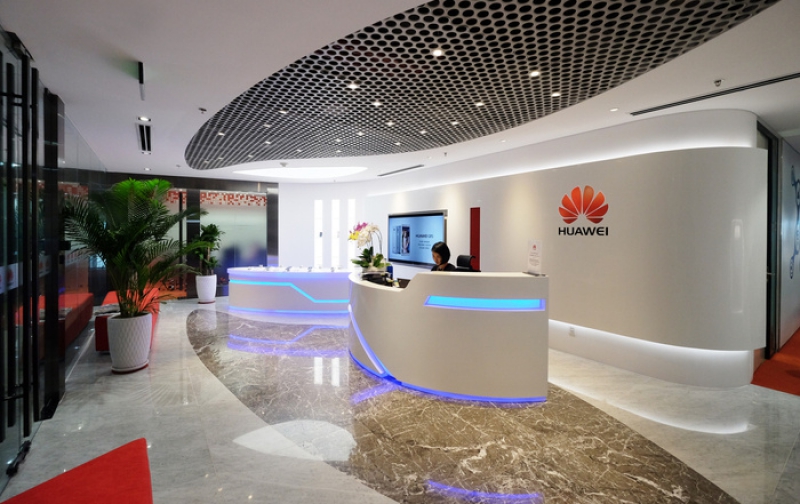
He adds that Huawei expects the students who want to try themselves at their company to have a good background in maths and programming. Another important requirement is not experience but flexibility in analyzing and solving problems.
Huawei started to collaborate with ITMO Career Center several months ago, when the company participated in the university's Career Day. Today, about 20 of ITMO's graduates and students work at Huawei’s St. Petersburg Research Centre.
"Most of them are researchers who provide us with breakthrough solutions. They have sufficiently good skills in maths and computer science that are a great help in solving complex tasks," comments Jiancheng Zeng.
For example, Vladislav Tretyak, a student at the Information Technologies and Programming Faculty, and Andrey Filchenkov, head of the Machine Learning Laboratory, work for the Center's Data Science team. They are focusing on tasks in the field of natural language processing.
Yulia Ganchikova, a Master's student at ITMO's Art&Science program, does UX Design, and Egor Gornak from the Information Technologies and Programming Faculty is part of a team that’s working on data compression. They've shared their experience and spoke about the knowledge you can get from internships and skills essential for being competitive in the labor market.
Vladislav Tretyak
I got to work at Huawei thanks to Andrey Filchenkov; we came to know each other at the university, I told him what I was doing, and then he offered me to try myself in this great team that was being brought together by the company. At the university, I do research in the field of machine learning. For one, we had a project when we solved a task on improving the quality of sequence generation with help from recurrent neural networks. On a global scale, this can help to educate neural networks better, and thus get better output.
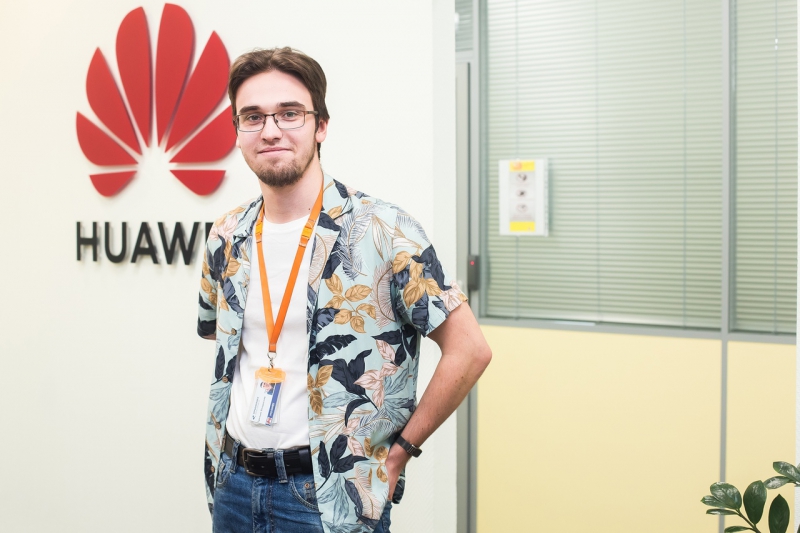
At Huawei, you get an opportunity to do research, for example, study particular tasks, their possible solutions, as well as offer your own: you read the code, work with models, and so on. Apart from research, I do development, as well.
I started studying machine learning by myself, back when I was a Bachelor's student studying information security. In the future, I'd like to focus on application tasks, but I am interested in doing research, as well. So the ideal choice would be to balance between these two paths. In modern times, you don't just write articles and do research; everyone expects you to also share your code and solutions with the community. And you can't write decent code if you don't practice.
The first thing that's necessary for a student to develop in the field of machine learning is to desire it. Today, there are many online resources that give you an opportunity to follow programs developed by leading universities for free. A regular Bachelor's program can give you the basics, but as the field is rapidly developing, you still have to get practical experience by yourself. Starting with your second year, you should look for internships at companies and participate in various hackathons.
Egor Gornak
I started working for Huawei thanks to an event that took place at ITMO University. They held a series of short interviews where you had to tell about yourself and your interests. I left my contacts, and then a representative of the company sent me an email and invited me over. I am currently in my second Bachelor's year, but I decided that I have to start taking internships as early as possible, much as many of my friends.
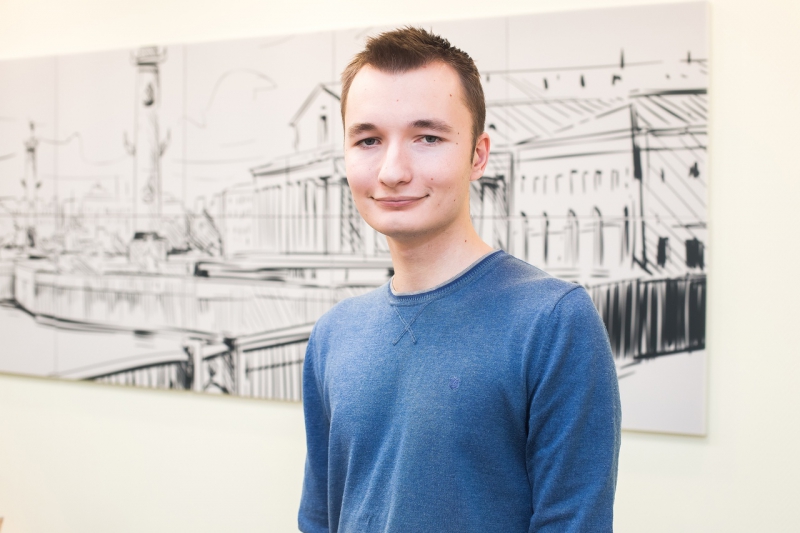
For my internship at Huawei, I work with a team that does data compression. Our work is a part of a bigger project that focuses on efficient data storage. On the whole, combining such an internship with my studies is nothing impossible. If you're doing everything right, you have no problems with meeting the deadlines at the university. What's more, some of the knowledge that I get at ITMO helps me with my internship, as well. For instance, many things that I do at Huawei have to do with discrete mathematics, and I already knew the fundamentals when I only came to the company.
On the other hand, I think that my internship helps me study better, as well. When we study particular subjects that have to do with programming and don't get many practical assignments, it's sometimes hard to understand how to apply such knowledge. But when you stumble upon such things as you work, everything becomes clear.
To my mind, doing internships while you are still a student is essential if you want to become a sought-after specialist. There are many summer internships, for example, at Google and many other companies. If you are no longer a student, you can't participate in them, so it's a good idea to try them out while you still can.
Yulia Ganchikova
I am currently in my first year of the Art&Science Master's program. Before that, I got my Bachelor's degree at ITMO, having majored in information security. I also got to Huawei thanks to the Speed Dating Interview event. I didn't get to talk to the company's representatives at that time, but I left them my resume. When looking for an internship, I didn't aim to work at some particular company, it just had to be related to UX design. And at Huawei, they had such a position. In a couple of days, the company's representative called me and invited to an interview, where I had to do a test assignment. In the end, they offered me an internship.

Apart from studying on a Master's program, I also get training at ITMO's Foreign Language Training Center. And despite the workload being quite big, I'd say combining studies and an internship is ok. You just have to be more active, manage your time properly, and arrange it with your lecturers to do part of your tasks remotely.
At Huawei, I work as part of a product team that does usability testing, writes scenarios for developers and so on. For this kind of work, the knowledge that I got from ITMO’s Soft Skills module proved very useful. For once, we had this subject called Emotional Intelligence, and I believe that this is something that's essential for every field. We have five members in our team, and we work in close coordination. Then again, we collaborate with those who are part of a larger group, and there are some 20 people there. So, we need to mind the emotional balance and be able to come to terms with just everyone.
In the future, I want to continue developing in the field of UX design, and I think that this field looks quite promising. I agree with those who say that you have to try yourself at different internships on a regular basis. This can help you understand what it is that you want to do in your life. There are different ways of finding good internships. For example, I often addressed my seniors, and they told me of places where they had theirs. You can also get good advice from your lecturers. Finally, you can learn about many good opportunities at ITMO's Career Center.
